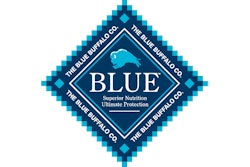
Anna K. Shoveller, PhD, assistant professor in the Department of Animal Biosciences at the University of Guelph in Ontario, Canada shared information about her university’s offerings for aspiring pet food industry professionals.
“I hope that all of my graduate students continue to work towards improving life for pets and their owners in Canada and globally.”
University of Guelph, Ontario, Canada and pet food education
Petfood Industry: What are some pet food career options for graduates of your program?
Shoveller: The Canadian pet food industry continues to grow and require incoming highly qualified personnel. Graduates from our department, Animal Biosciences, and specifically my laboratory have gone to work as nutritionists, formulators, and product developers for pet retail (PetValu), co-manufacturers (Elmira), various emerging Canadian pet food companies, and nutrition companies (Trouw). In addition, we find that our undergrads often sell or promote pet foods for multiple companies including Royal Canin, Blue Buffalo, Hills and others.
“The Canadian pet food industry continues to grow and require incoming highly qualified personnel.”
Petfood Industry: What are some particular academic strengths or emphases within your department, and how do these help prepare students to become pet food professionals?
Shoveller: Our faculty conducts research in the disciplines of nutrition, nutrition modelling, physiology, molecular biology, behavior, breeding, genetics and meat science. Within our college, we collaborate with food scientists and plant scientists. Across colleges, we collaborate with the College of Biological Sciences and particularly human nutritionists and physiologists in Human Health and Nutritional Science. Particularly for my program, I am lucky to have a board certified veterinary nutritionist in the Ontario Veterinary College, Adronie Verbrugghe, DVM, who I collaborate with extensively. This mix of expertise ensures that we provide high quality mentorship to our undergraduate and graduate students on the academic side. We are also lucky to have a lot of industry collaborative granting programs in Canada and that ensures that we help the industry solve key issues and provide scientific guidance where necessary.
“This mix of expertise ensures that we provide high quality mentorship to our undergraduate and graduate students on the academic side.”
Petfood Industry: Could you share an anecdote about a particular student who moved into a pet food career?
Shoveller: Without breaking confidences, one of my most talented graduate students went from being so nervous she would throw up to now running multi-functional R and D teams for a Canadian retailer. It is amazing to see how far and fast they run. I hope that all of my graduate students continue to work towards improving life for pets and their owners in Canada and globally.
Pet food industry career education
Educational institutions around the world offer classes and degree programs designed to prepare the next generation of pet food professionals or boost the knowledge of mid-career pros. This article is part of a series profiling these academic opportunities leading to pet food industry careers.
Read more: Pet food nutrition: higher education for mid-career pros

















